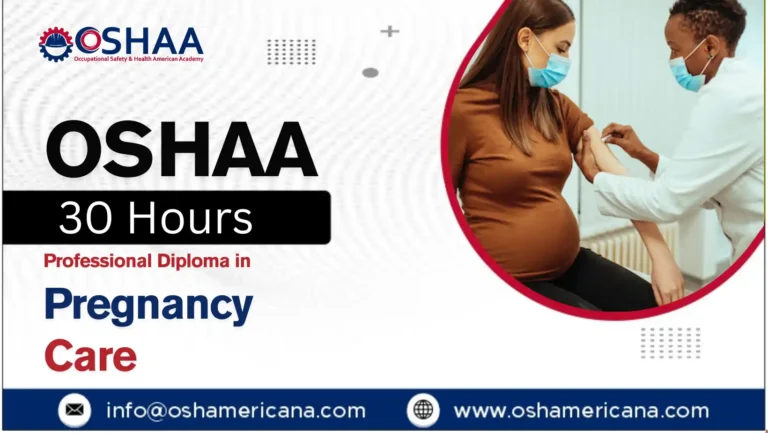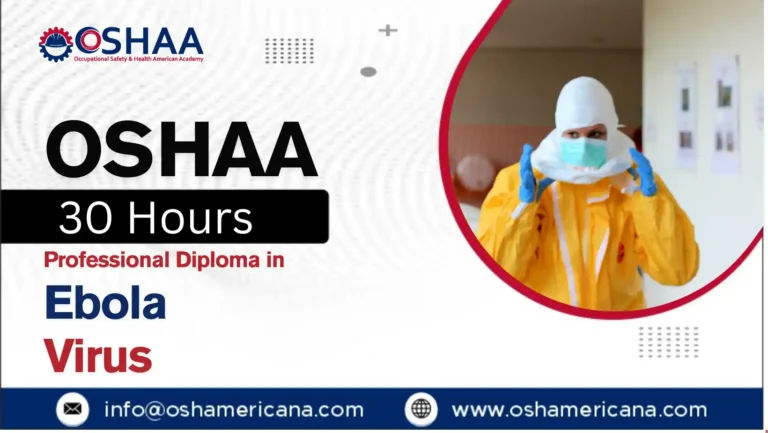Master Nursing Communication with Diploma in Practice Skills
Effective communication is at the heart of quality nursing care. The OSHAA 30-Hours Diploma in Nursing Practice Communication Skills is designed to enhance professional communication within healthcare settings, empowering participants to engage confidently, sensitively, and clearly with patients, families, and colleagues. This programme addresses the unique interpersonal and situational challenges that arise in nursing environments and provides practical strategies for building strong therapeutic relationships and collaborative working practices.
This diploma offers a structured, evidence-based learning experience that prepares participants to navigate complex clinical conversations, adapt to diverse communication styles, and apply ethical and culturally competent practices. It is a valuable foundation for nurses and allied health professionals aiming to strengthen both verbal and non-verbal communication in high-pressure or emotionally charged contexts.
Communication in nursing extends far beyond information exchange. It includes empathy, active listening, non-verbal cues, and clarity under stress. This course explores all aspects of professional interaction in healthcare, with an emphasis on enhancing patient care, building trust, and maintaining clear documentation. Participants will develop techniques to respond to emotional needs, deliver difficult news, and collaborate effectively within multidisciplinary teams.
Over 30 hours of guided study, the diploma combines theoretical learning with practical examples, roleplay scenarios, and case-based reflection to support deep learning and immediate application in real-world care settings.
Upon completion, participants can progress to further training in advanced clinical communication, leadership in nursing, patient advocacy, or specialist care communication roles. The diploma also supports continued professional development and meets the growing emphasis on communication excellence in healthcare accreditation and career advancement.
OSHAA 30-Hours Diploma in Nursing Practice Communication Skills
Study Units
Learning Outcomes
Foundations of Communication in Nursing Practice (3 hours)
- Understand the critical role of communication in patient-centred care.
- Identify key elements contributing to effective communication in clinical settings.
- Recognise common barriers to clear communication.
- Develop strategies to overcome communication challenges.
- Apply communication knowledge to enhance patient outcomes, satisfaction, and safety.
Verbal and Non-Verbal Communication Techniques (3 hours)
- Demonstrate effective verbal communication tailored to patient needs.
- Interpret non-verbal cues such as gestures, facial expressions, and body language.
- Adapt communication styles to different clinical situations.
- Maintain clarity, tone, and professionalism in interactions.
- Build patient trust and engagement through consistent communication.
Active Listening and Empathetic Responses (5 hours)
- Develop active listening skills to ensure patients feel heard.
- Respond empathetically to verbal and emotional cues.
- Build trust and rapport with patients and their families.
- Understand the impact of listening on accurate assessment and care planning.
- Integrate empathy to improve therapeutic relationships and patient outcomes.
Communicating with Patients from Diverse Backgrounds (3 hours)
- Recognise cultural, linguistic, and belief-based differences in communication.
- Adapt interactions to suit diverse patient needs.
- Demonstrate cultural sensitivity and inclusivity in clinical practice.
- Identify and overcome potential communication barriers.
- Promote equitable access to care through effective communication.
Handling Difficult Conversations and Emotional Situations (4 hours)
- Communicate effectively in end-of-life, crisis, or complaint scenarios.
- Manage emotional reactions professionally while showing empathy.
- Apply de-escalation techniques in high-stress situations.
- Deliver sensitive information without compromising patient trust.
- Support patient and team wellbeing during challenging interactions.
Interprofessional Communication and Team Collaboration (6 hours)
- Communicate clearly and respectfully within multidisciplinary teams.
- Understand roles and responsibilities of different healthcare professionals.
- Use structured tools like SBAR for accurate information exchange.
- Develop team problem-solving and conflict resolution skills.
- Promote a collaborative and cohesive work environment.
Patient Education and Health Literacy (4 hours)
- Assess patient understanding and tailor communication to health literacy levels.
- Simplify complex medical concepts using accessible language.
- Support informed decision-making and patient adherence.
- Apply teaching strategies to improve comprehension and outcomes.
- Integrate patient education into daily nursing practice.
Legal, Ethical, and Confidential Aspects of Communication (2 hours)
- Understand patient confidentiality and data protection laws.
- Apply ethical principles in all professional interactions.
- Recognise legal and professional consequences of poor communication.
- Ensure documentation and communication meet professional standards.
- Protect patient rights while delivering safe and effective care.
Course Benefits – OSHAA 30-Hours Diploma in Nursing Practice Communication Skills
- Enhances the ability to communicate effectively with patients, families, and healthcare professionals
- Develops confident use of verbal and non-verbal communication in clinical settings
- Strengthens active listening and empathetic response skills to improve patient rapport
- Promotes cultural competence and inclusive communication with diverse populations
- Equips participants to manage difficult conversations with clarity and professionalism
- Improves collaboration and information-sharing within multidisciplinary healthcare teams
- Supports accurate and ethical communication of medical information to patients
- Reinforces legal and ethical standards in clinical documentation and interactions
- Reduces misunderstandings and errors through structured, clear communication practices
- Offers a valuable professional development opportunity aligned with nursing standards and best practices
The OSHAA 30-Hours Diploma in Nursing Practice Communication Skills is designed for participants who:
- Work in nursing or allied healthcare roles and wish to enhance their communication abilities
- Provide direct care to patients in hospitals, clinics, or community healthcare environments
- Want to improve patient engagement, understanding, and trust through clear communication
- Face emotionally sensitive conversations and seek structured approaches to manage them
- Collaborate with multidisciplinary teams and aim to strengthen interprofessional communication
- Are involved in patient education and wish to improve health literacy outcomes
- Require improved documentation and ethical communication practices for regulatory compliance
- Seek to build confidence in managing communication challenges in diverse care settings







